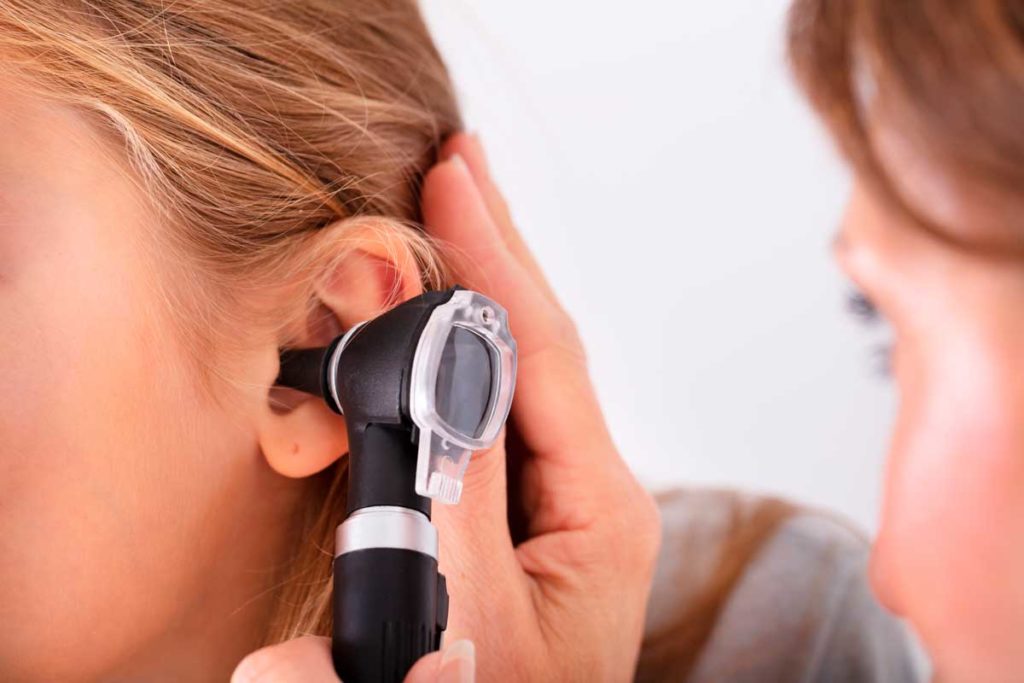By Amy Bates, MS, FNP-C

A common reason younger patients are seen for an evaluation is for ear infections. Symptoms of an ear infection may include fever, pulling on the ear, fussiness, and poor appetite. Vomiting or diarrhea are also sometimes symptoms of an ear infection.
But as parents, especially during the cold and flu season, it can be hard to determine when to bring your child in for a “sick visit.” Once fall hits, it feels like school-aged children constantly have cold symptoms until the warmer months return. For parents with more than one child, it can seem like someone in the house is always sick.
Understandably, parents want to avoid calling out of work if possible, and the last thing they want to do is bring their kids in for an office visit if it is not necessary. So which symptoms do we decide to monitor at home, and which warrant evaluation?
We want to do what’s best for our kids and may think that antibiotics are the answer. However, not all ear infections require treatment with antibiotics. Many ear infections can be caused by a virus and not bacteria. In these cases, antibiotics don’t help because they don’t kill viruses.
Through a shared decision between providers and parents, depending on a child’s age and symptoms, it may be appropriate to observe children for signs of improvement or decline over a 48-72 hour period after diagnosis. The decision to observe a child instead of immediately initiating antibiotics should only be made when close follow up care is available.
Below, you will find some tips that may be helpful as you consider your next steps when an ear infection is suspected. If you have questions, I encourage you to reach out to us or contact your child’s healthcare provider for more information. We are here to help.
When might it be appropriate to observe my child and manage symptoms instead of using antibiotics?
- If your child is older than six months of age and only has an ear infection in one ear.
- If your child’s symptoms are mild and their temperature is less than 102.2 degrees Fahrenheit.
- If your child meets the above criteria and does not have a weakened immune system.
- If you have access to a follow up appointment.
- If your child’s signs and symptoms do not improve or worsen within 48-72 hours, antibiotics should be considered.
What does symptomatic treatment include?
- Pain control with acetaminophen (Tylenol) or ibuprofen (Motrin, Advil).
- Check with your healthcare provider on appropriate dosing, which is based on a child’s weight.
- Ibuprofen (Motrin, Advil) should not be administered to children less than 6 months of age.
- Please note, it is never ok to give aspirin to a child less than 18 years of age as this can cause Reye Syndrome
How can I prevent ear infections and other illnesses in my child?
- Check with your child’s healthcare provider to ensure they are up to date on immunizations.
- Make sure caregivers are up to date on immunizations as well, including yearly influenza vaccines and the Tdap vaccine which protects against pertussis (whooping cough).
- Prevent the common cold.
- Practice good hand hygiene.
- Teach child to cough and sneeze into elbow.

Amy Bates, MS, FNP-C, practices at Northern Light Mercy Primary Care in Yarmouth.





